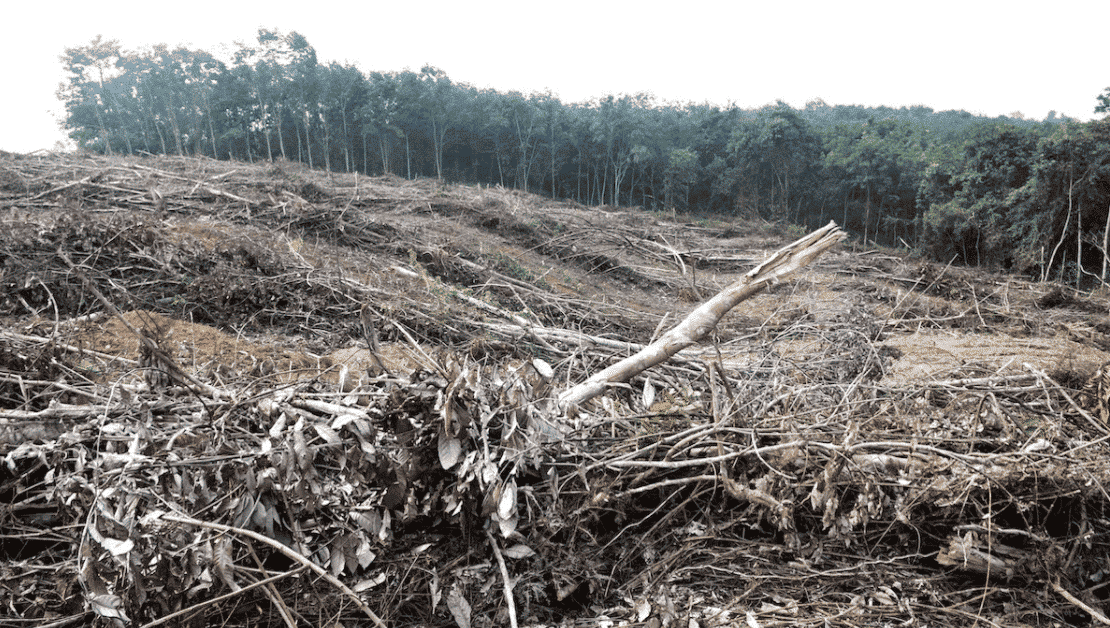
Palm Oil Plantations Could Be Defined as Reforestation Efforts in Indonesia Under ‘Dangerous’ Proposal

The Bogor Institute of Agriculture, a leading forestry university in Indonesia, is proposing a controversial plan: to define planting palm oil plantations as reforestation efforts. Typically creating palm oil plantations is considered deforestation, as it requires clearing native forests for monocultures.
In Indonesia, the palm oil industry is a leading cause of deforestation as natural forests are cleared to make space for plantations of the single type of crop. Now, efforts led by Yanto Santosa, a professor at the Bogor Institute of Agriculture, are pushing for oil palms to be labeled as forest crops rather than agricultural crops.
This reclassification would mean palm oil companies could plant oil palms in forested areas, because this action would no longer be considered deforestation, despite the fact that native plants would be removed to produce palm oil instead.
There are currently about 16.4 million hectares of palm oil plantations in Indonesia, and if the reclassification proposal is accepted, all of that deforestation would be classified as reforestation, despite decades of land clearing. The Bogor Institute of Agriculture also claims that reclassifying oil palm planting as reforestation would help the environment. According to the school of forestry dean Naresworo Nugroho, these oil palms would absorb 57.2 tons of carbon dioxide equivalent per hectare per year.
While oil palms do store carbon, their impact pales in comparison to natural forests’ ability to sequest carbon. According to Mongabay, the deforestation required to establish a palm oil plantation releases more carbon emissions than the new oil palms can store. Over the course of two decades, oil palm plantations store 50% to 90% less carbon than the native forest.
Indonesia has about 125.9 million hectares zoned as forested areas, which are protected from deforestation. If a palm oil company wants to clear these protected areas to establish a plantation, they need to convince the Ministry of Environment and Forestry to delist certain forest plots.
However, under the new proposal, palm oil companies could skip this step and could start clearing forested land under the classification of planting “forest crops.”
“Oil palm entering forest area will speed up the loss of natural forests,” said Teddy Rusolono, a professor of forest management at Bogor Institute of Agriculture. According to Rusolono, Indonesia’s deforestation rate “is already high, let alone if oil palm is officially categorized as a forest crop. This will be very dangerous.”
Based in Los Angeles, Paige is a writer who is passionate about sustainability. Aside from writing for EcoWatch, Paige also writes for Insider, HomeAdvisor, Thrillist, EuroCheapo, Eat This, Not That!, and more. She earned her Bachelor’s degree in Journalism from Ohio University and holds a certificate in Women’s, Gender and Sexuality Studies. She also specialized in sustainable agriculture while pursuing her undergraduate degree. When she’s not writing, Paige enjoys decorating her apartment, enjoying a cup of coffee and experimenting in the kitchen (with local, seasonal ingredients, of course!).

 233k
233k  41k
41k  Subscribe
Subscribe 